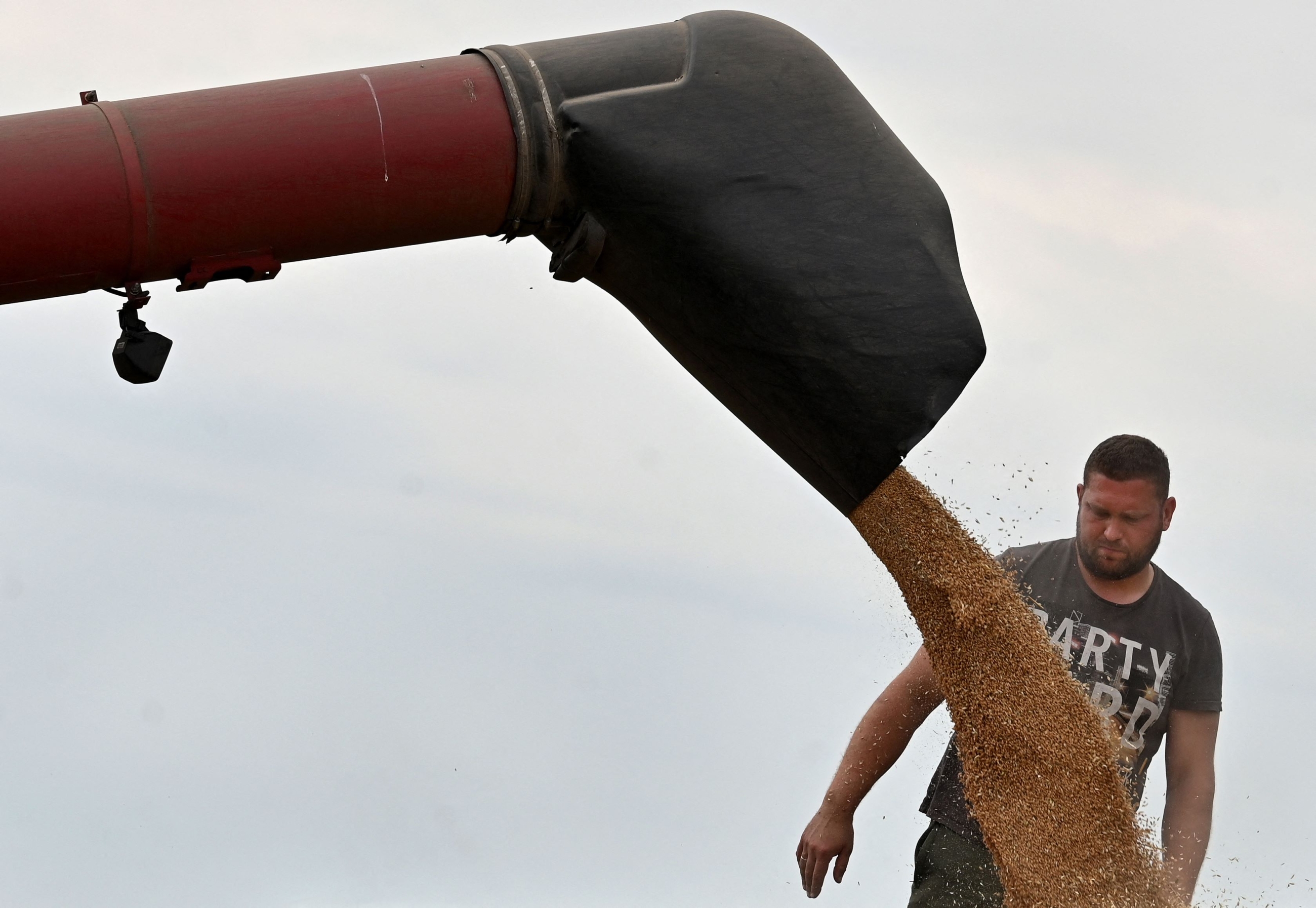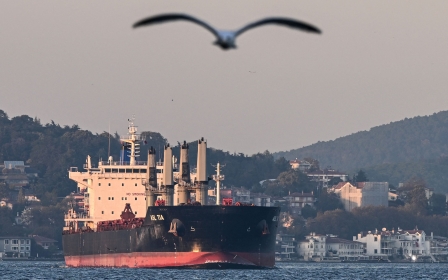Russia-Ukraine war: Wheat prices rocket following collapse of Black Sea grain deal

Wheat prices have soared as the global economy begins to feel the impact of Russia's withdrawal from the Ukraine grain deal on Monday.
Prices on the European stock exchange jumped by 8.2 percent on Wednesday from the previous day, reaching €253.75 ($284) per tonne, while corn prices rose by 5.4 percent.
Meanwhile, US wheat futures jumped 8.5 percent, marking the highest daily rise since just after the Russian invasion of Ukraine in 2022.
On Monday, Russia said it had officially notified Turkey, Ukraine, and the UN that it was against extending the Black Sea grain export deal.
The move is likely to have a deeply negative impact on the Middle East and North Africa, which is heavily reliant on Ukraine for wheat.
Stay informed with MEE's newsletters
Sign up to get the latest alerts, insights and analysis, starting with Turkey Unpacked
Prior to the war, Egypt had relied on Russia and Ukraine for 80 percent of its wheat.
The deal - which was brokered by the UN and Turkey in 2022 - aimed at allowing the export of grain from war-torn Ukraine, easing the heavy impact of the war on global food prices.
"In fact, the Black Sea agreements ceased to be valid today," Kremlin spokesman Dmitry Peskov told reporters on Monday.
"Unfortunately, the part of these Black Sea agreements concerning Russia has not been implemented so far, so its effect is terminated."
The deal was originally part of an effort to combat a global food crisis sparked by disruption to grain supplies following the Russian invasion of Ukraine. The deal was renewed in March, for 60 days.
However, Moscow has since issued fresh demands, including a prisoner exchange and changes to its export restrictions.
On Tuesday, Egypt's First Assistant Minister to Supply and Internal Trade Ibrahim Ashmawy downplayed the impact of Russia leaving the deal.
“In general, it is too early to judge this matter, because any disturbances that occur in the supply chains in a negative way will have an impact on prices,” Ashmawy said in an interview on Egyptian TV.
He said Egypt had "safe reserves of a number of strategic commodities, on top of which is wheat, and we have reserves that cover a period of six months."
“Egypt worked to diversify supply chains, totaling 22 origin points, after it was concentrated at the time of coronavirus in wheat markets from Russia and Ukraine by 80 percent, but now Egypt has a diversity of wheat sources.”
Middle East Eye delivers independent and unrivalled coverage and analysis of the Middle East, North Africa and beyond. To learn more about republishing this content and the associated fees, please fill out this form. More about MEE can be found here.





